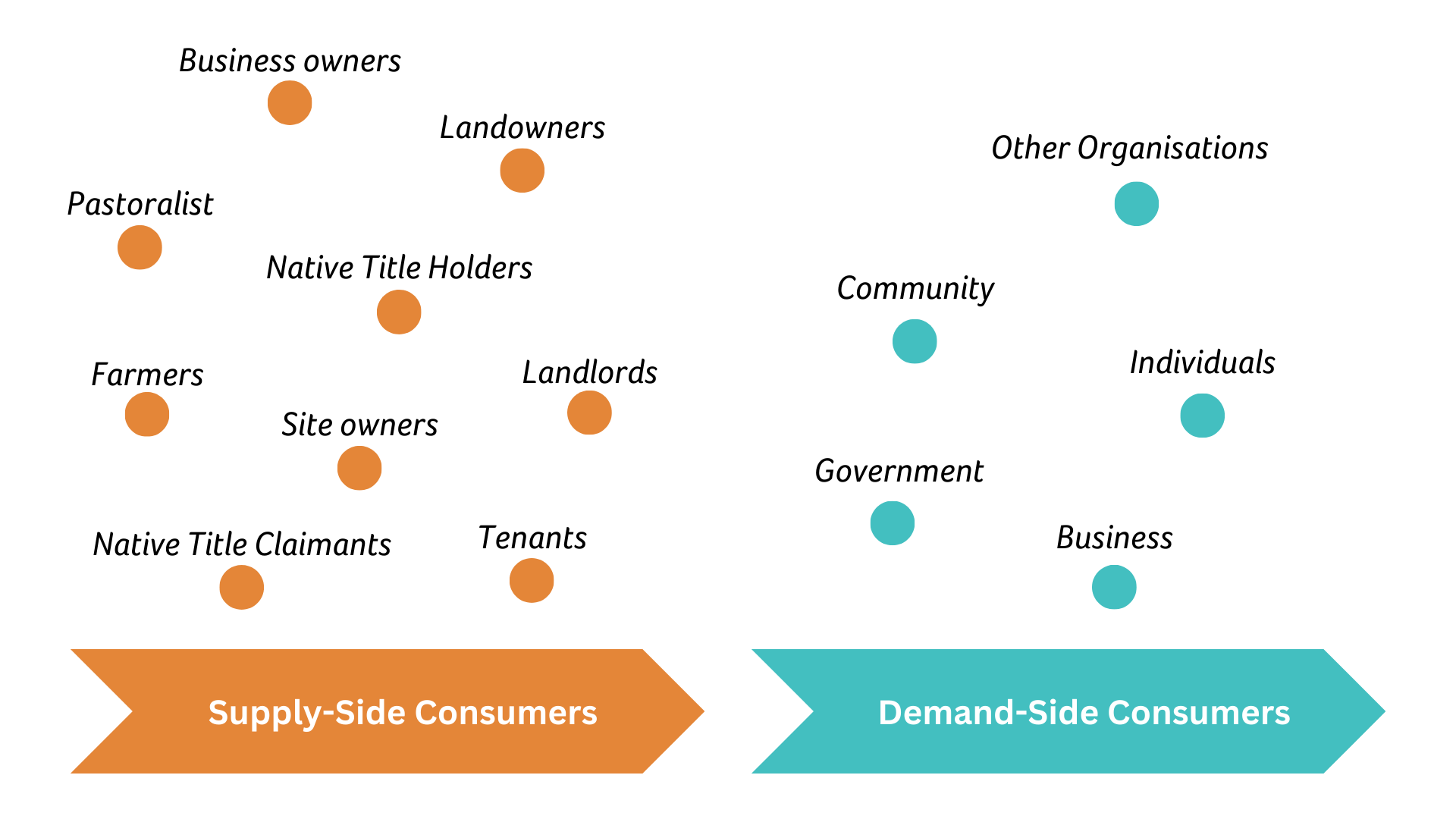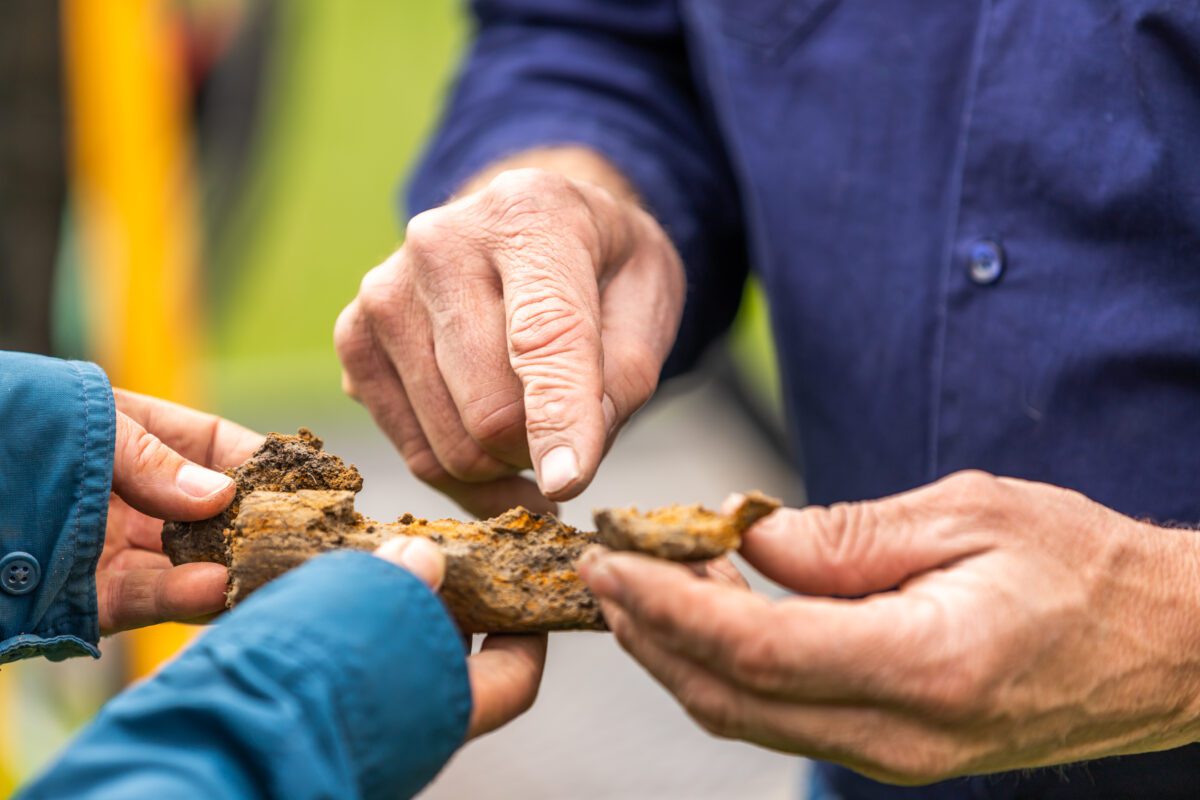
Consumers Rights
Who are consumers?
Consumers and clients may be on the supply-side of the market (dealing with projects on the ground), or the demand-side of the market (purchasing carbon credits). You may also interact with both the supply and demand sides of the market.

-
These consumers require protections from risks associated with projects being undertaken on land where they have rights or interests.
You may be approached by businesses, which may or may not be Signatories to the Code of Conduct. These businesses may request for you to agree to carbon projects being implemented on your land, sites and/or within your business operations.
-
These consumers require protections from risks associated with receiving advice on and purchasing carbon credits for either compliance or voluntary purposes.
Signatories to the Code of Conduct have obligations relating to the types of information, advice, and documentation that they provide to their clients. When providing services to clients, Signatories are required to apply best practices to their business activities both before a project commences, as well as during the project’s lifetime.
Consumers Rights

The Code creates a framework for protecting the rights and interests of consumers and clients.
Due to the complex and rapidly evolving nature of the carbon industry, consumers and clients require protections from risks associated with carbon projects being undertaken particularly where they have legal rights and/or have an eligible interest in the land where a project is being proposed. This includes if you are a landholder, land manager, farmer, Native Title Holder, or another type of consumer.
If you are a client of a Signatory to the Code of Conduct, your rights will be protected more than if you are a client of an organisation that is not a Signatory to the Code.
The Code’s Consumer Rights Framework
The Code creates a framework for protecting the rights and interests of consumers and clients.
If you are a client of a Signatory to the Code of Conduct, your rights will be protected more than if you are a client of an organisation that is not a Signatory to the Code.
-
Clients must be provided with information about:
- The legal, regulatory or other obligations that the client may have if they enter into an agreement
with the Signatory; - The relevant project method requirements;
- The administrative and compliance requirements of the project, such as record keeping, audits,
and eligibility criteria; - The options for selling carbon credits;
- The project timeline;
- The client’s obligations relating to the land during the project’s permanence period (for landbased projects);
- The client’s obligations if there is a natural disturbance to the land;
- The risks and potential consequences of the project; andThe implications if the land where the project is being undertaken is sold.
- The legal, regulatory or other obligations that the client may have if they enter into an agreement
-
Signatories must also:
- Disclose to clients any interests or benefits that they may have in the project or sale of credits;
- Seek to ensure genuine and early engagement with Native Title Holders, and if possible registered
Native Title Claimants; - Provide clients with a written project management plan, and ensure that you understand the plan;
- Provide clients with a copy of the Code Overview Fact Sheet and of the Signatory’s own complaints handling
procedure document(s); and - Ensure regular contact with landholders, provide regular advice to the client and ensure that any
issues that arise can be addressed in a timely and efficient way.
Learn more about the Code Role

The Code aims to protect and support carbon industry consumers
The people carbon service providers engage with, including Native Title Holders, representative bodies, land managers and project owners have rights when it comes to participating in carbon reduction or sequestration activities.
Get to know your rights, and what you can do if something goes wrong.
Engaging with Signatories
Current Signatories

Signatories to the Code represent a range of carbon service providers, including agents, aggregators or advisers. See which Australian service providers are committed to industry best practice.
Signatory Responsibilities

Signatories to the Code have agreed to conduct their business with integrity, transparency and accountability, and their clients should dealt with in a manner that benefit the best practices outlined in the Code.
Indigenous Engagement

The Code requires stronger levels of engagement with Indigenous stakeholders to support implementation of best practice engagement across the carbon industry.
